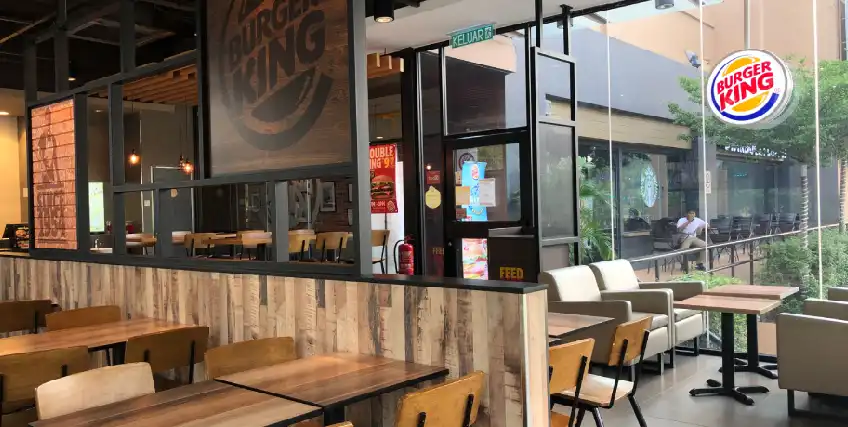Getting Loans for Franchise Purchases? What You Should Know
July 10, 2025 | Last Updated on: July 10, 2025

How exciting does it sound to start your own Subway or Dunkin’ Donuts franchise? This is a smart way to own a business with a trusted brand. However, the costs can be significant. Many small business owners typically need a loan to manage all these franchise expenses.
Getting loans helps to purchase a franchise and cover other expenses such as franchise fees, renovations, equipment, and working capital. Additionally, loans also provide funds for unexpected expenses during the early months. These expenses could include repairs, staff training, or small equipment purchases. Planning for such costs helps reduce financial stress and ensures smooth operations as your franchise opens.
This guide will walk you through all the loan options that you can get for your franchise. We’ll also talk about how to get loans, apply for the loan application process, manage loan payments, and avoid costly mistakes.
Why Getting Loans for Franchise Purchases Is Unique
Franchise financing differs from other small business loans. Lenders often see franchises as lower-risk options because of their proven success. This is something that can improve your creditworthiness in their eyes.
Franchisors often provide business planning support, helping borrowers to meet eligibility requirements for getting loans. One important thing to understand before considering franchise purchasing is that costs usually include equipment, signage, and renovations, and not just rent.
Let’s take an example. A restaurant franchise may need to get a loan online for kitchen upgrades and inventory. Some franchises also require funds for marketing, payroll, promotions, and hiring, which can be covered by flexible loan options. Hence, getting loans for franchises can include personal loans, SBA loans, or lines of credit, depending on the needs of the borrower.
Types of Loans Available for Franchise Purchases
Business owners can choose from several loan programs that are available for franchise purchases. However, each loan option comes with unique loan terms and repayment terms. Therefore, it’s important to compare these options carefully as they vary in interest rates, loan amount limits, and eligibility requirements.
Some lenders also offer special features, such as automatic payments or discounts for borrowers with excellent credit when getting loans. Hence, exploring multiple loan programs can help ensure you select the best fit for your business.
Here are some easy loans to get for franchise purchasing.
SBA Loans
SBA loans such as SBA 7(a) and SBA 504, offer lower interest rates and longer repayment terms. These loans often come with origination fees but provide solid options for franchise buyers. However, SBA loans often require detailed loan applications but can provide high loan amounts for large projects.
Traditional Bank Loans
Banks with member FDIC status offer small business loans with competitive annual percentage rates (APR). Borrowers with excellent credit and a strong credit report can get these loans. However, bank loans come with fixed interest rates and loan terms, which provide predictable monthly payments. Moreover, some banks also offer deposit products and checking accounts as part of business packages when getting loans.
Credit Union Loans
Credit unions offer lower interest rate business loans that come with flexible loan payments. Getting these loans is often easy for borrowers who have a good credit history and a strong relationship with the institution. They may sometimes waive certain origination fees or offer lower APR ranges.
Lines of Credit
Business lines of credit are useful for ongoing costs like unexpected expenses or renovations. You can get this loan option along with others to support your business growth. As a result, this helps when franchises need quick cash for emergencies.
Alternative Lenders
Alternative lenders may be able to get a loan within a few business days. However, they may come with higher APR ranges and prepayment penalties. Moreover, these lenders can help borrowers who need fast funding, but need to be compared carefully before considering.
Personal Loans
Some business owners use personal loans for minor buildouts when purchasing a franchise. They can also use tools like a personal loan calculator to estimate monthly payments when getting these loans. Also, personal loans can help cover costs like signage or office furniture when the loan amount needed is small.
Factors Lenders Consider Before Getting Loans
When getting loans to purchase a franchise, lenders look at some of the important factors. They often review details to assess risks, repayment abilities, and overall creditworthiness. Understanding these factors closely can help borrowers strengthen their loan applications and improve their chances of approval.
- Credit Score and Credit History: A good credit score and reports from credit bureaus matter a lot to lenders. They want to see responsible credit card use and minimal credit card debt. Hence, excellent credit helps secure lower interest rates when getting loans for franchises.
- Debt-to-Income Ratio (DTI): A debt-to-income ratio helps assess loan eligibility and loan amount. A lower DTI ratio often improves loan approval chances. Therefore, maintaining a healthy ratio shows that you can handle new loan payments on top of existing obligations.
- Bank Account and Deposit Products: A business checking account or savings account shows financial stability. Some lenders also review your deposit account activity. Therefore, having automatic payments set up through a deposit account may help qualify for discounts.
- Collateral: Lenders often want security like property or equipment when getting loans. Additionally, some lenders also consider inventory or deposit products as collateral when borrowing money.
- Business Plan Strength: A detailed business plan helps show creditworthiness. It includes cash flow projections and strategies for managing loan payments.
Steps to Secure Franchise Financing
Here are some important steps that can help simplify the loan application and improve your chances of approval when getting loans for franchise purchases. You can take your time to understand each step to avoid common mistakes. Also, it helps you present a stronger case to lenders and secure better loan terms.
- Review Loan Options: Explore SBA, credit union, and bank loans. You can compare interest rate offers and fixed interest rate choices. Also, don’t forget to check loan terms, such as prepayment penalties and origination fees.
- Gather Documents: Make sure to prepare your credit report, tax returns, franchise agreement, and business plan. Have your Social Security number ready. Some lenders may also ask for details on your bank account, deposit products, and business checking account.
- Check Your Creditworthiness: Always pay down credit card debt. This boosts credit score and lowers the chance of a negative credit inquiry. Therefore, a clean credit history can lead to lower interest rate offers and better loan terms.
- Apply Smartly: Apply to lenders offering lower interest rates. Ask about autopay or automatic payments to help manage loan payments. Additionally, make sure you understand repayment terms and avoid lenders with hidden fees.
- Use Personal Loan Calculators: These tools help estimate monthly payments. They also let you compare loan options before you apply.
- Monitor the Process: Follow up with the lender during the business day to speed up approval.
Mistakes to Avoid When Getting Loans for Franchise Purchases
Business owners often make these errors. These mistakes can affect loan approval chances and lead to higher costs over time. Knowing about these risks in advance helps borrowers make smarter choices when applying for franchise financing:
- Overestimating Profits: Unrealistic revenue expectations can hurt your cash flow and lead to refinancing needs. Always base estimates on solid data.
- Not Comparing Lenders: Missing out on the lowest rates or flexible loan programs can cost more long-term. Use tools and online reviews to compare lenders.
- Skipping Fine Print: Overlooking prepayment penalties, fees, or hidden costs can lead to unpleasant surprises. Take time to read all loan terms carefully.
- Applying Without Preparation: A rushed loan application often leads to rejection. Ensure your credit report, debt-to-income ratio, and business plan are strong before applying.
Conclusion
Getting loans for franchise purchases can open doors to exciting business opportunities when approached thoughtfully. Smart planning, research, and preparation give you the best chance for loan approval and favorable terms.
From easy loans to get from credit unions to exploring how to get a loan online or even get a loan with no credit, a variety of options can match different needs. Now is the time to review lenders carefully, strengthen your creditworthiness, and take those first confident steps toward your franchise goals.
Also, make use of deposit products, personal loan calculators, and expert advice to map out a clear plan.
FAQs About Getting Loans for Franchise Purchases
What credit score helps when applying for franchise loans?
Lenders typically favor applicants who have higher credit scores, however, the exact number varies. They usually assess the overall financial health, including credit history, debt-to-income ratio, and credit card usage. Therefore, having a balanced profile often matters more than just a single number when getting loans to purchase franchises.
Is a down payment always needed for a franchise loan?
Many lenders do expect a down payment or some form of security. However, the amount can vary depending on the lender. Some borrowers use a mix of savings, business assets, or other financing sources. Hence, it’s better to check with the lender’s guidelines and the franchise type.
How long does the loan approval process usually take?
Loan approval timelines widely vary because every lender has its own process. For instance, SBA loans may take longer due to additional paperwork, while alternative lenders might decide faster. Therefore, if you provide clear documents and follow up regularly, this can help move things along.
Can franchise loans cover all startup costs?
Franchise loans typically cover major expenses like equipment, fees, and renovations. Still, many owners choose to supplement with personal funds or credit. The final amount often depends on both the lender’s offer and business plan.
What documents do lenders usually ask for?
Lenders usually request tax returns, bank statements, business plans, and franchise agreements. They may also ask for ID and details on accounts. Therefore, having these ready can help make the process smoother.
Frequent searches leading to this page
Term Loans are made by Itria Ventures LLC or Cross River Bank, Member FDIC. This is not a deposit product. California residents: Itria Ventures LLC is licensed by the Department of Financial Protection and Innovation. Loans are made or arranged pursuant to California Financing Law License # 60DBO-35839




